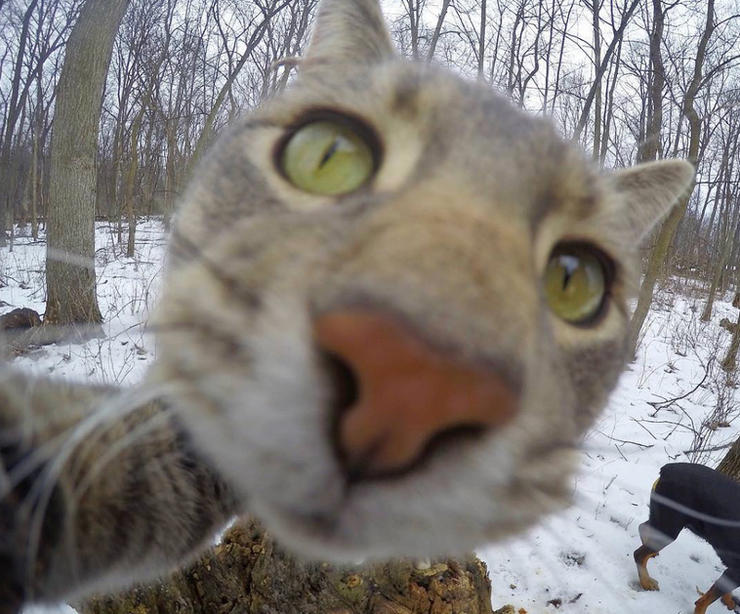You started your small business because you have a passion for the product you’re selling. In the past, I bet you’ve managed to convince a family member or friend that they need the product you’re selling, but in a relaxed, non-pushy sales way because you didn’t even realise you were doing it.
Now, if I said you need to do this but on camera to your social media following, how would you feel about it? To many, the thought of talking on camera makes them freeze instantly, so you’re not alone!
With this in mind, it’s not surprising that so many creators are hesitant to make video content featuring themselves- it’s pretty intimidating. However, video is increasingly important, especially for small businesses.
It’s a brilliant way to reach a whole new audience, as well as connecting to your existing followers on a more personal level.
You’ve probably seen small business owners talking to camera looking relaxed and confident - this can be you too! Here are the top tips for feeling more confident on camera.
PREPARATION IS KEY
Don’t be fooled by all the video content you see online! Those Tiktok dances take hours of practice to perfect and more than just one click of the record button. Please don’t put that kind of pressure on yourself, you don’t have to get it right the first, second or even third time…

Practice Makes Perfect
The best way to start building your confidence, as silly as it sounds, is to act like you’re talking to the camera when completing your daily tasks. Talk to your imaginary audience. Maybe it’s a haul whilst unpacking your food shop. Chat with them whilst washing the dishes or taking them through your morning routine. Anything really to get you talking is perfect! Write down what you want to say.
It’s always best to write a brief script outlining what you want to say. You don’t need to write it out word-for-word, but it will help you to stay more focused.
Knowing what you’re going to say on camera will be way less daunting. Trust us, that level of calm will translate on camera!
Get Ready To Film.
Set time aside before filming to make you feel your best, whether it’s getting into your favourite outfit or listening to a Spotify ‘confidence booster’ playlist. Treat it like you are psyching yourself up before a job interview. We promise this will make you more confident on camera.

The Power Of The Pose.
Social psychologist Amy Cuddy argues that "power posing" even when we don't feel confident, can boost feelings of confidence. This is the act in which people stand in a posture, usually, with their feet apart, hands on their hips, and their chin tilted upward so that they feel mentally more powerful. Apparently, it can even influence testosterone and cortisol levels in the brain - pretty impressive, isn’t it? And definitely a top tip to remember!
BE PRACTICAL
It’s time to be practical and think about your filming location - you can’t have someone in the background being noisy when you’re trying to film. The time of day, your backdrop and positioning all need to be considered before you start filming…
Light It Up.
Good - lighting - is - everything! Natural daylight when the sun is shining, just not so bright that it blinds you and you have to squint, is the best kind of lighting and especially that golden hour before sunset. You’ll be glowing on camera!
Top tip! Make sure your light source whether it be daylight or a ring light is in front of you. Avoid backlighting and overhead lighting, this can cause unflattering shadows. No one needs that knock to their confidence when trying to get the perfect shot.
Backdrop.
Use a neutral background when filming, and remove any distracting elements - remember you’re the main character in this you don’t want any distractions! But at the same time, a plain white wall is super boring and uninspiring! Your backdrop should be relatable to your audience and your business. If your business is catering, a clean, uncluttered kitchen is perfect - but not so much if you’re trying to sell sports equipment.
Position Yourself.
Top tip, if the lens starts to steam up you’re too close and if you look tiny on screen you’re too far away!

Position yourself so that you’re central on the screen, your face should be fully in the picture. Also, make sure there is a slight border that surrounds you - and then try not to move.
Can You Hear That?
There’s no point in talking if you can’t be heard, right? That’s why it’s so important to make sure your filming spot is quiet, with no background noise or risk of sudden noises. To avoid any dodgy audio, we recommend filming a test clip so that you know if you are close enough to the microphone or if you need to move in.
TIME TO FILM
Now you’re prepared, it’s time to take the leap and get in front of the lens.

Be Yourself.
Your ideal followers will connect with you, not with a fake version of yourself. So, just be yourself and act as if you are talking to a friend on the other side of the camera. This will resonate better with your audience and will come across a lot more naturally for you too.
Don’t worry about amping up parts of your personality for the camera, but it’s so important to embrace yourself! You never know, your personality could become a part of your USP.
Body Language.
First impressions count! It’s not just about the words that are coming out of your mouth, your body language matters too. Always look about two inches above the camera, this will look like you’re looking straight through the lens and will instantly make you look more confident.
Next, try your best not to fidget and before pressing play take a big deep breath and relax. If you’re nervously moving about a lot, it will distract the viewer from what you’re trying to say.
And don’t forget to smile! If you look disinterested, it will be hard for people to enjoy watching you.
Don’t Rush.
No need to add extra stress with a time limit on filming. Make sure you give yourself plenty of time to record and even re-record as many times as you feel you need to. Don’t be afraid of starting your sentence again, or even that whole section again - editing is your friend!
Speak slowly and clearly - nerves can make you speed up making it hard for you to be understood. The calmer you are, the more confident on camera you'll be.

Ok, I think you’re ready…
There’s no doubt that to truly be confident on camera will take time for you to feel comfortable in front of a camera, but the more practice you have the closer you’ll get each time! And, until then you have these tips to follow to make the prospect of filming slightly less daunting and more enjoyable.
Good Luck!


